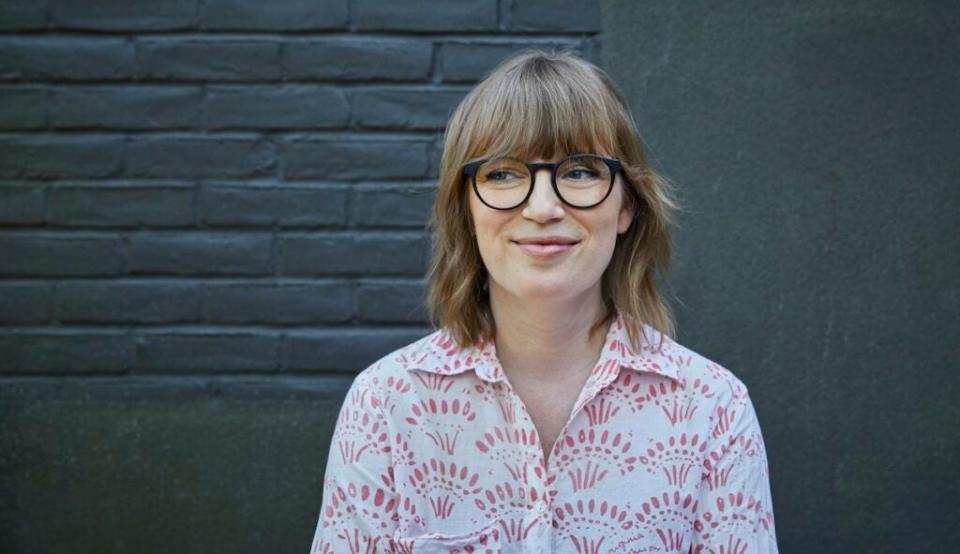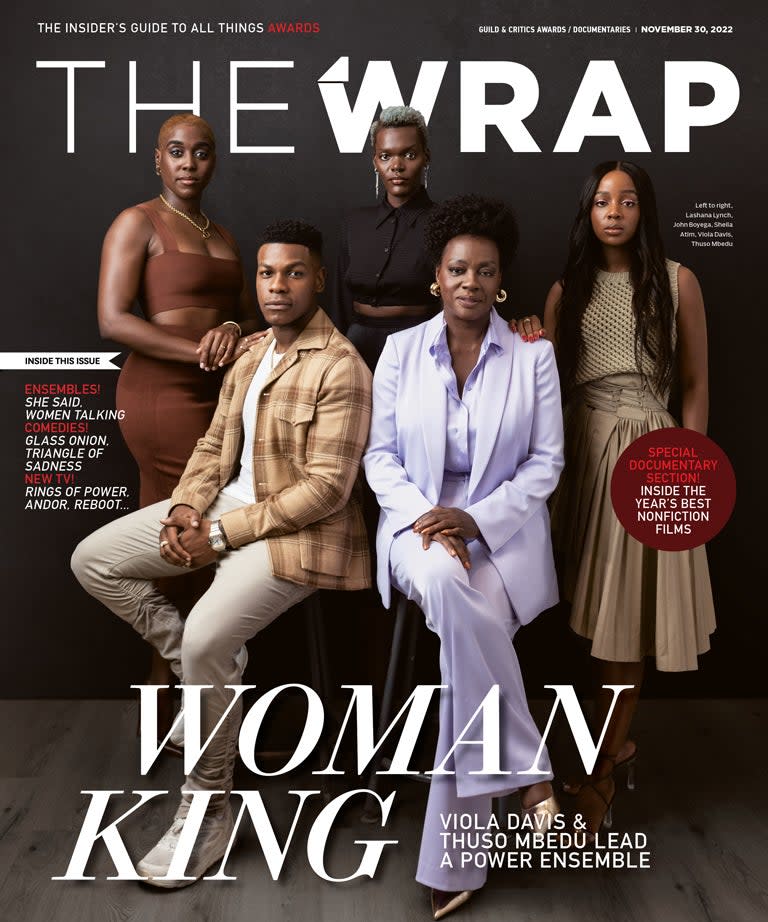‘Women Talking’ Director Sarah Polley Describes the ‘Power of Community’ in Her Ensemble Cast
A version of this story about the “Women Talking” first appeared in the Guilds & Critics Awards / Documentaries issue of TheWrap’s awards magazine.
“Women Talking,” author Miriam Toews’s 2018 novel, was inspired by a serial sexual assault case in Bolivia, where more than a hundred Mennonite women were tranquilized and raped by men in their secluded community. Hearing the gruesome real-life details, it’s easy to imagine the kind of true-crime sensation that the story might have made in lurid docuseries form.
But that was not what motivated actor-turned-director Sarah Polley (Away From Her) to helm this movie adaptation. “It’s not a film that’s detailing graphic sexual assault,” Polley said. “It’s about the impact on the women who have survived and how they want to move forward. It felt to me more like an epic story of hope, almost like a fable. The conversation in the film goes a step further (beyond the crime), as it does in the novel, which excited me about telling it.”
The movie is set primarily in the hayloft of a barn, where several women serve as democratic representatives for all the community’s women, debating the question of whether they should stay or leave.

The ensemble cast includes Rooney Mara, Claire Foy, and Jessie Buckley, along with veteran actresses Judith Ivey and Sheila McCarthy, plus Ben Whishaw as a schoolteacher who is present to take notes of the meeting. (Only men are allowed an education; the women are all illiterate.)
“The single location was daunting,” said casting director John Buchan, who with Jason Knight spent six months compiling lists of actors for each role. “So we did look at a lot of people with theater backgrounds, figuring that they could work within a single set while being willing to try different things and step out of their comfort zone.”
Polley, meanwhile, was also thinking carefully about how the performers would blend as a group, especially given that some of the characters are related to each other. “That was a complicated puzzle,” she said. “It was hard to cast one person without knowing who the rest of her family would be, so we kind of had to cast people in packs. We could believe in a family once everybody was in it.”
Also Read:
‘Women Talking’ Film Review: Sarah Polley’s Searing Drama Contemplates Revenge and Forgiveness
One of those families is headed by the warm but steadfast Agata, played by Ivey. The two-time Tony Award winner humorously admitted she was a bit intimidated that her daughters in the film were former Lisbeth Salanders: Mara in “The Girl With the Dragon Tattoo” (2011) and Foy in “The Girl in the Spider’s Web” (2018). “That was a little intense when I first realized it,” Ivey said with a smile. “But they are both amazing and it was an incredible privilege to play their mother.”
Ivey based much of her performance on her Texas grandmother, who was born in 1894 and lived into her 90s. “She was truly a happily religious woman in that she was open-minded and respectful of everyone. I tried to emulate her groundedness and especially her laugh. My character is the one holding the center, so that if the conversation goes off track with someone’s anger or tears or panic, she is there to bring it back into focus for the group.”
The other wise elder in the cast, Greta, is played by McCarthy, the treasured Canadian actress who once appeared as Polley’s mother in a 1991 series called “The Hidden Room.” In the film, Greta is impaired by ill-fitting dentures as a result of her sexual abuse. For McCarthy, that detail unlocked great physical and emotional access to the character. “It’s so meaningful, the idea that her teeth would be the reminder of her rape,” she said. “I always held a handkerchief to my mouth, constantly aware that her mouth would be hurting all the time. But I also found it profound that her voice had been taken away and now she is finding her voice again, even if it’s with these teeth that don’t fit. For me, it was huge.”
Also big for McCarthy was the downtime the film offered all the actors to spend with each other. “Life certainly mirrored the passionate conversation going on in the film,” she said. “There were lots of discussions about current issues, American politics, the elections in Canada. But we also laughed a bunch and talked about good sales on (retail site) Free People, talked about dinner, talked about what we were watching at night on Netflix.” (Her choice for unwinding: “The Great British Baking Show.”)
Conversations between Polley and her actors also led the writer-director to tweak the screenplay. “We had big a read-through with a lot of the cast and that made me re-write things,” said Polley. “The script was a very alive document. And people brought things to the table in terms of dialogue. At one point, Sheila had mentioned to me that she knew someone in an abusive relationship and this person had said to her, ‘I’m leaving because I cannot stay.’ And I put that line in the script.”
Elsewhere, in perhaps the most resonant and emotional moment in the whole film, one of the actors removed a single word from her dialogue. The choice provides a complex human moment of uplift during a crucial late scene.
“This was a Jessie Buckley special,” Polley said with a proud smile. “It was near the end of the film and Jessie was was supposed to say, ‘I suddenly feel very powerful.’ Her character is physically hurt and quite emotional at the time, and Jessie told me, ‘I don’t know if I can get the whole line out.’ And we realized: you don’t need the last word in that line for the audience to get what she means. I absolutely loved that choice she made.”
The overall camaraderie was essential for Polley. In fact, during early rehearsals with the cast in the hayloft set, the filmmaker instituted a rule that if anyone was having a hard time for any reason, the rehearsals would pause and the cast would take a break. “And on day three or four of rehearsal, someone was having a difficult time and we went outside for a while,” Polley recalled. “And I gave the person an option of calling it a day, but they wanted to come back in. And the whole cast had formed a circle on the floor with a space for them. The generosity sprang up in a way that was really palpable. And I was just like, ‘Wow, this really is a community.”


 Yahoo Movies
Yahoo Movies 